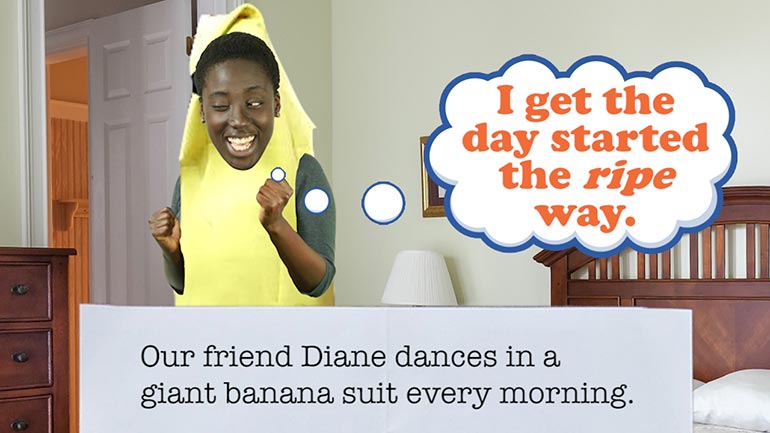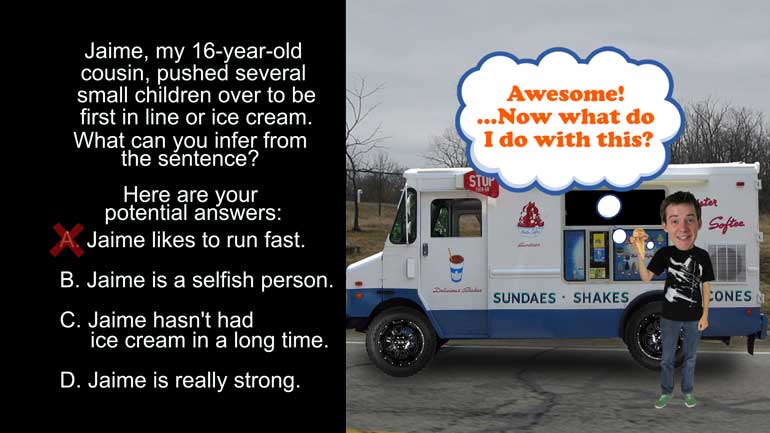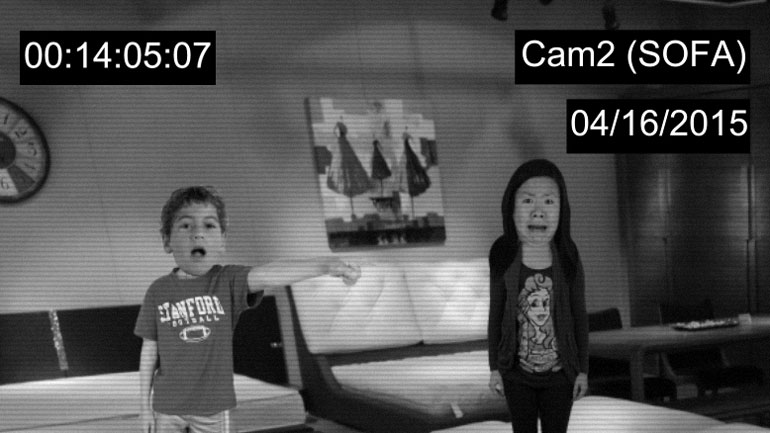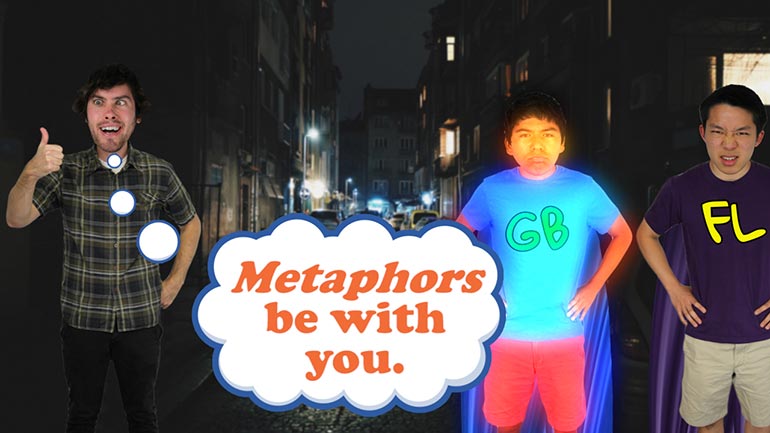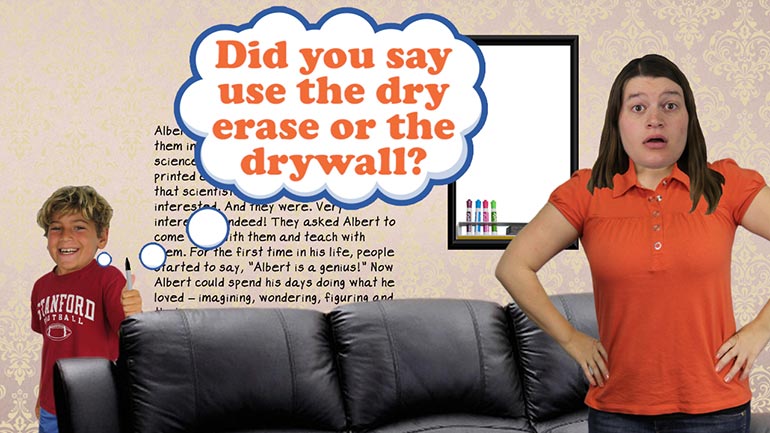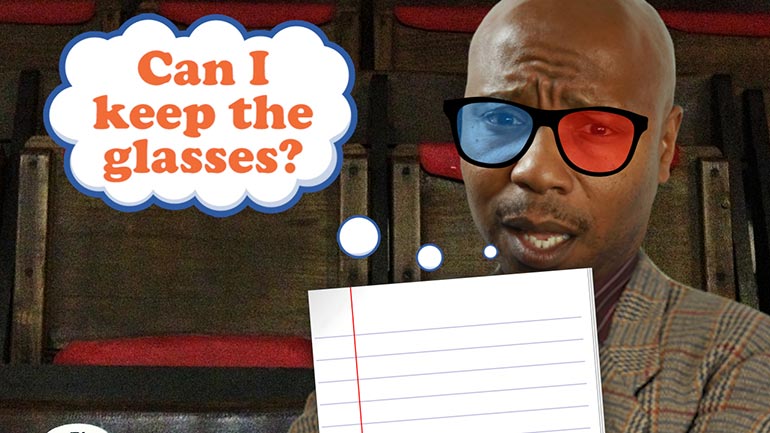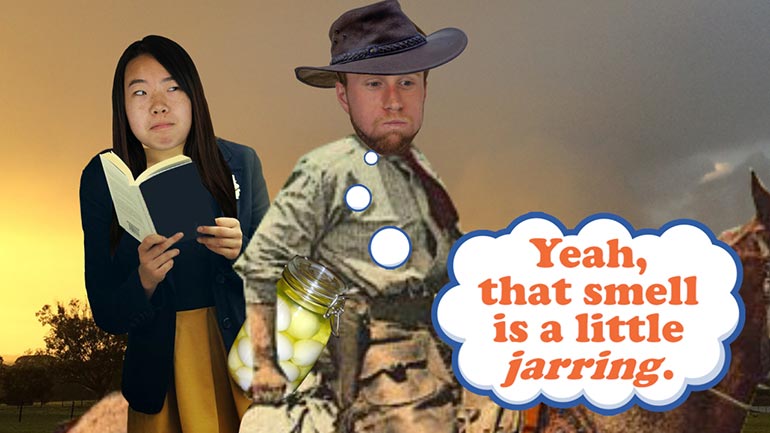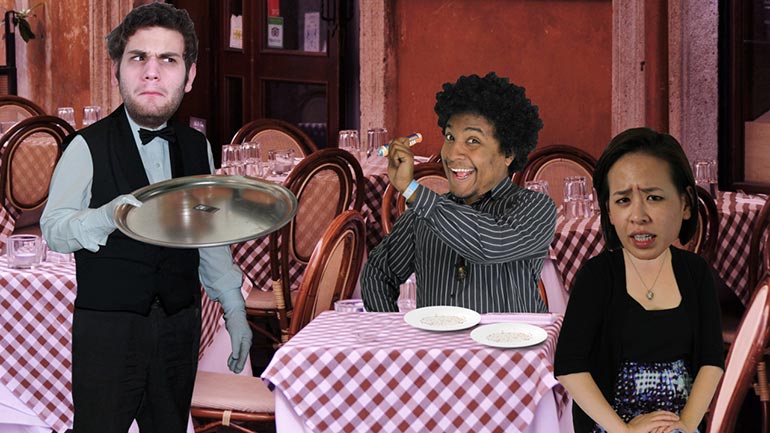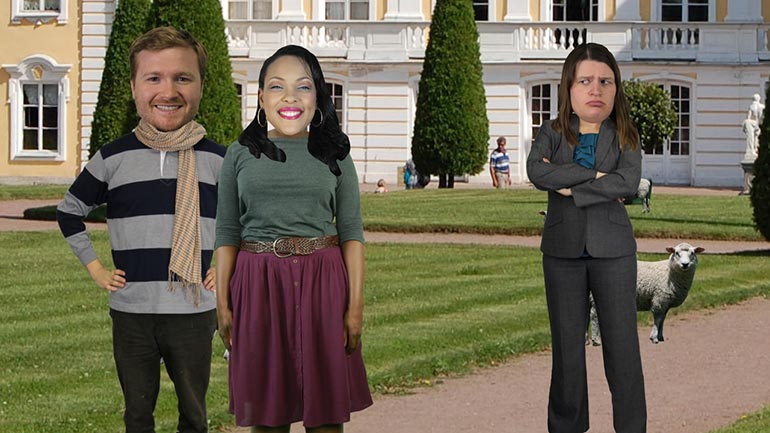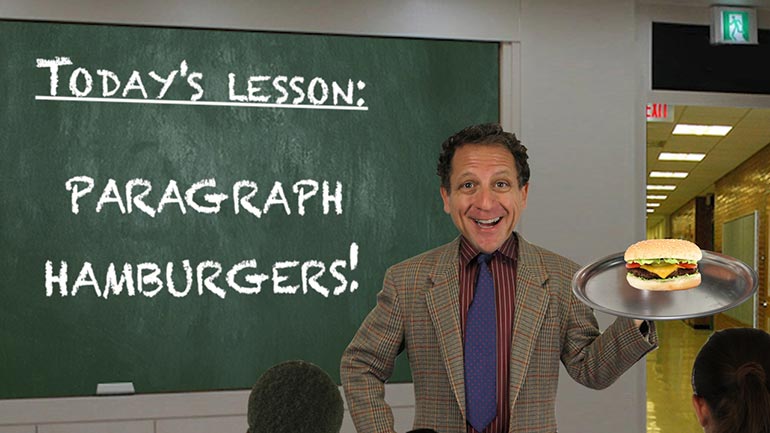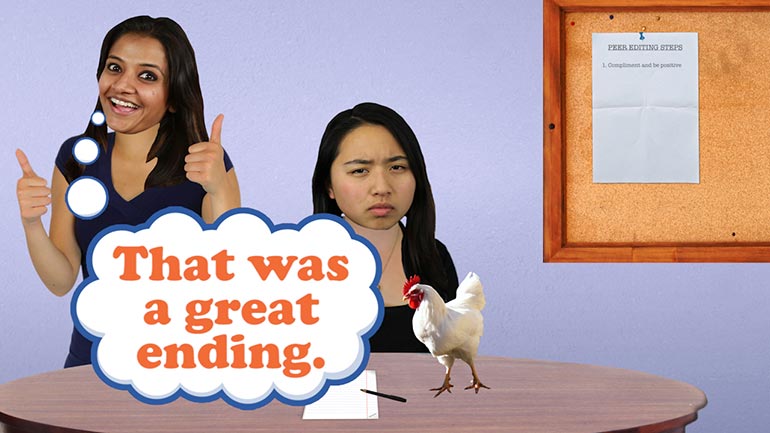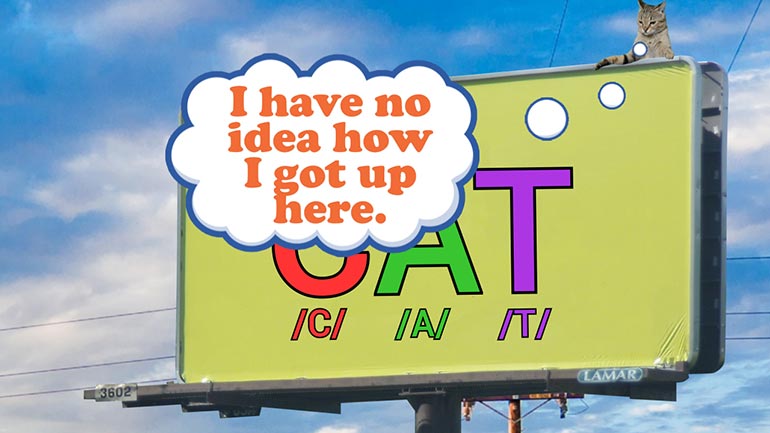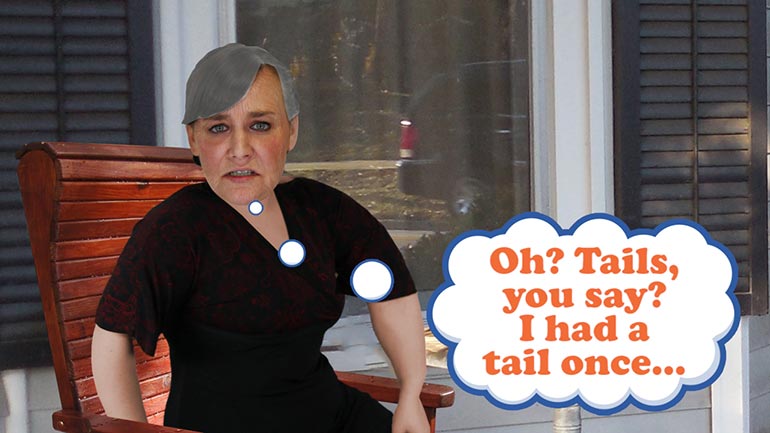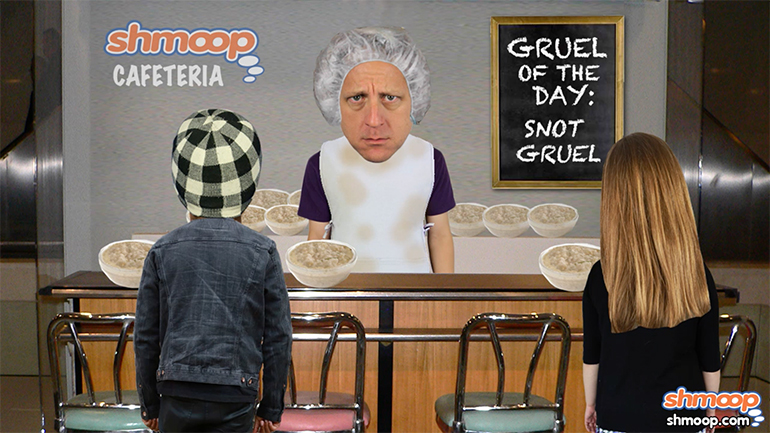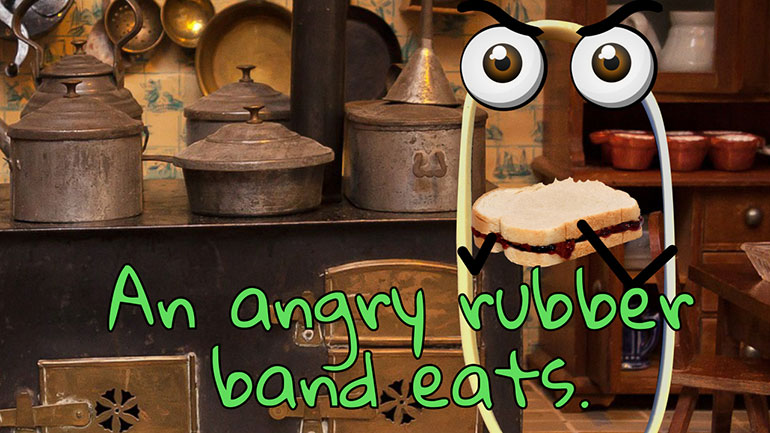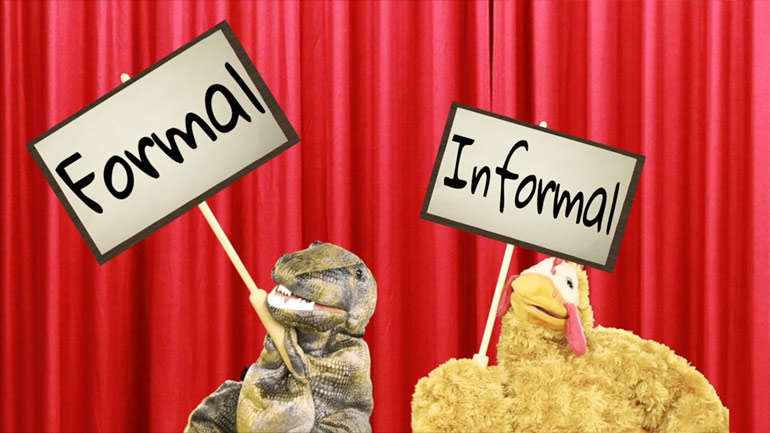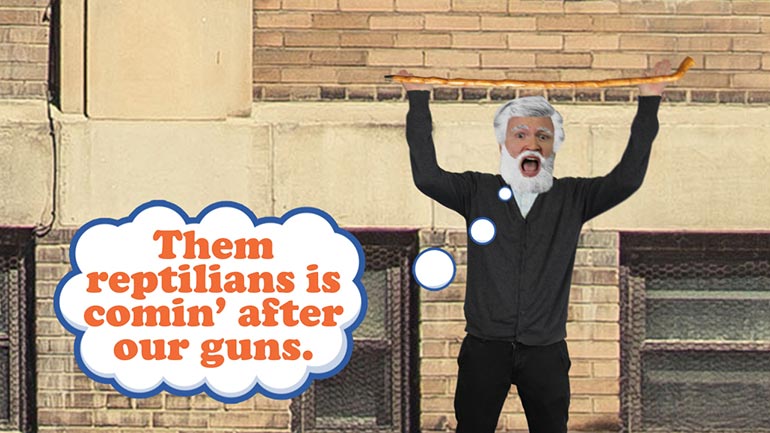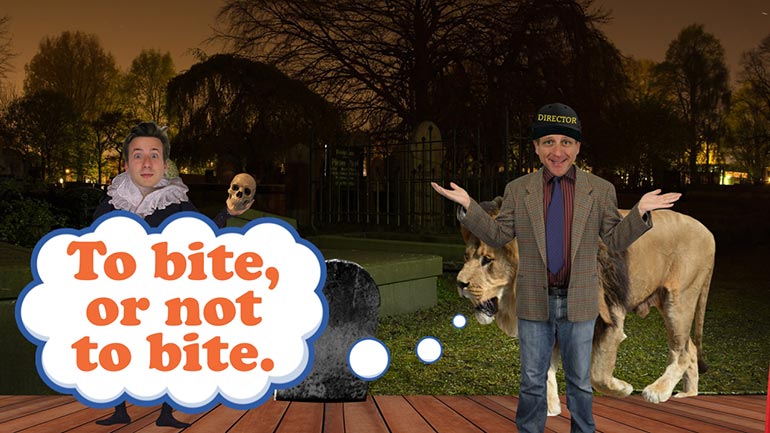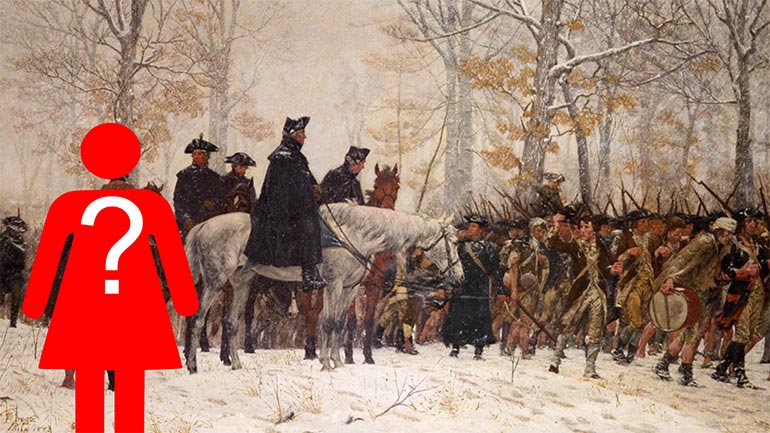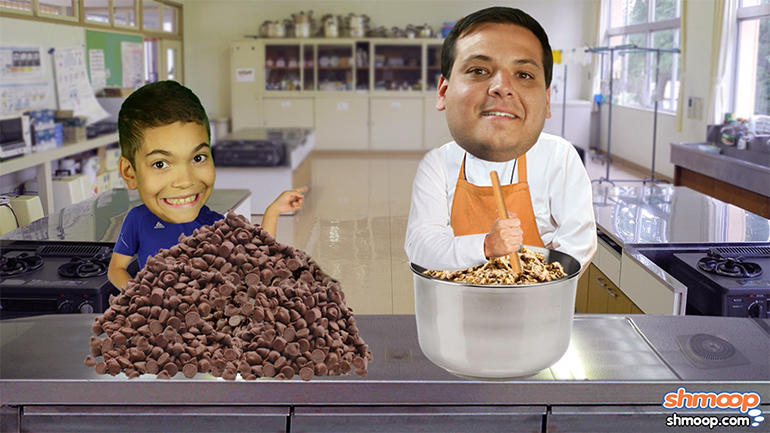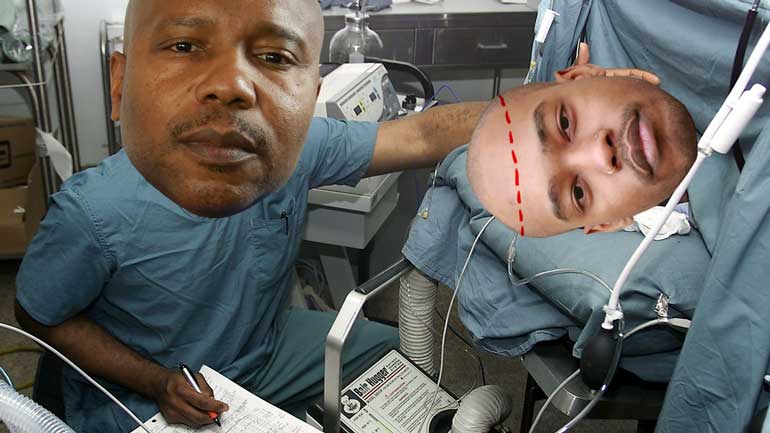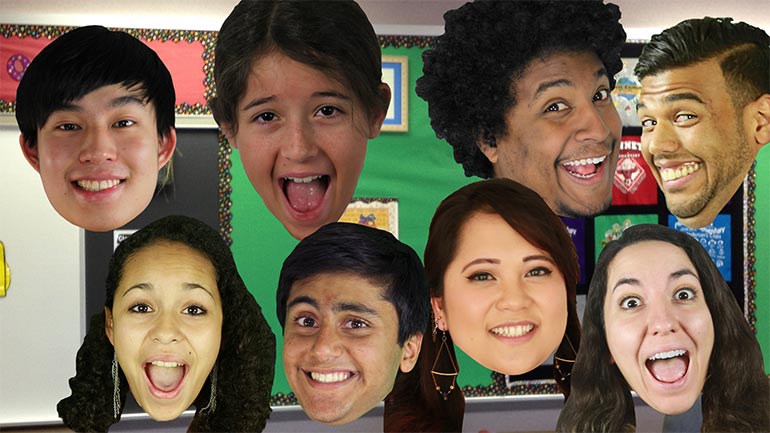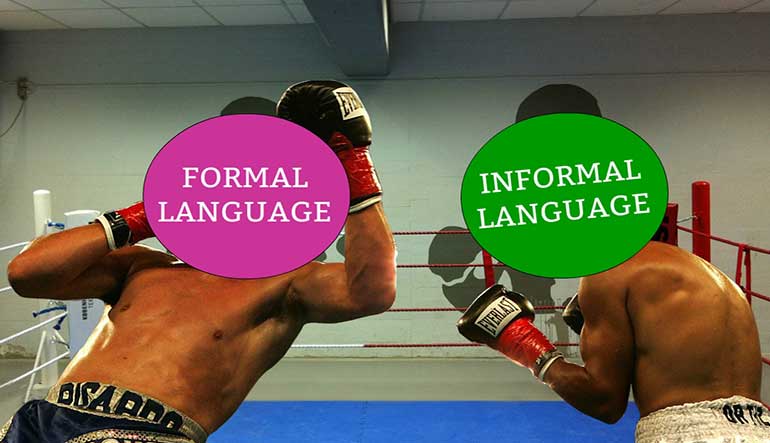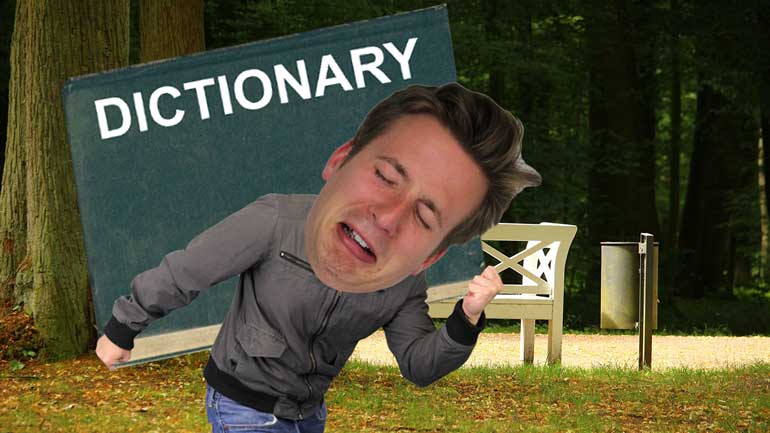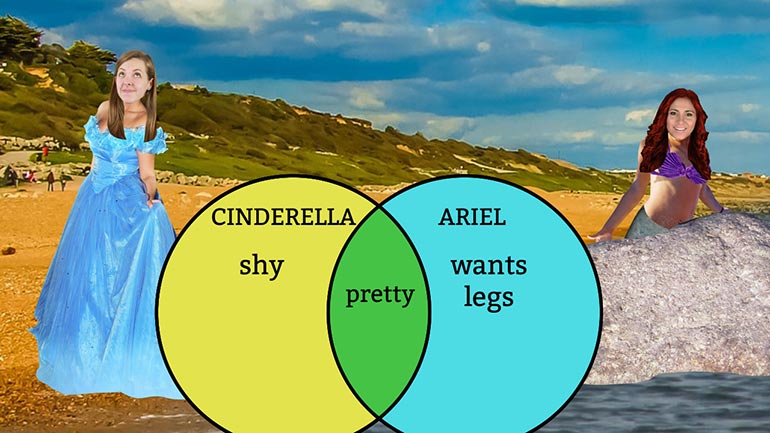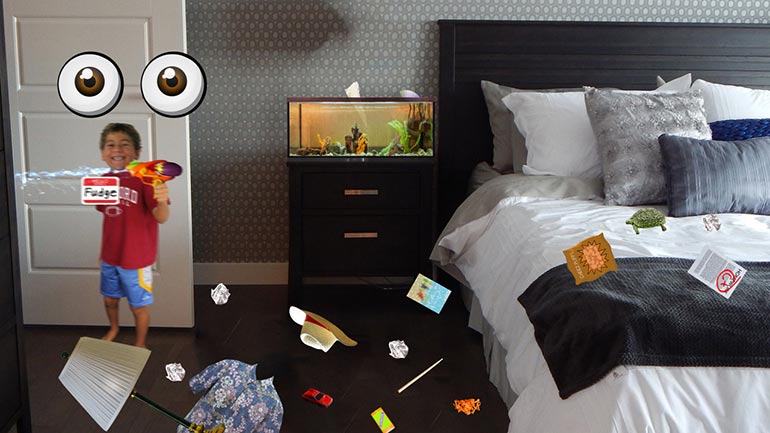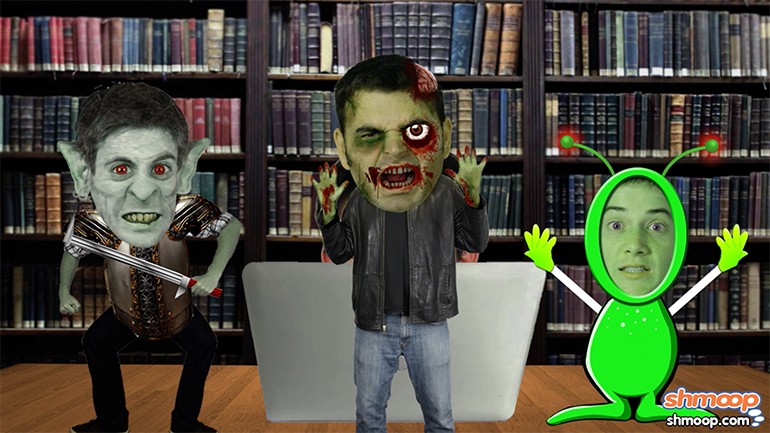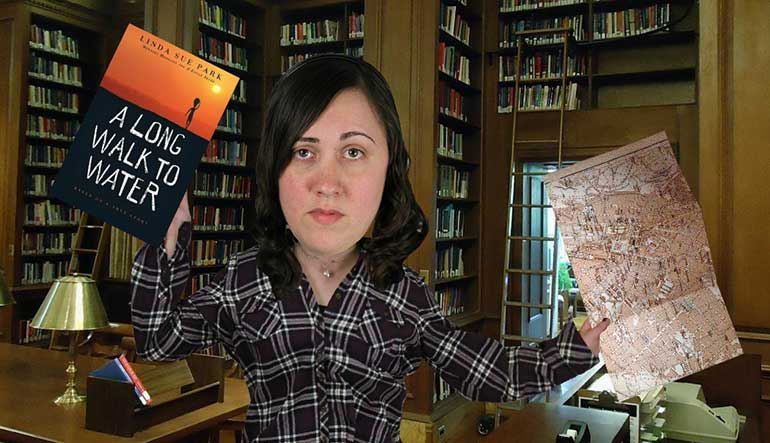ShmoopTube
Where Monty Python meets your 10th grade teacher.
Search Thousands of Shmoop Videos
Language Arts Videos 92 videos
In this lesson we'll subject you to some verbs and predicates. Each one is a necessary part of a complete breakfas—er...sentence.
Choosing words carefully is important. You may end up vexing the assemblage of citizens you're conversing with...or you might even just plain bore...
ELA 4: How to "Read" a Nonfiction Speech 29 Views
Share It!
Description:
Today we'll give you some tips on reading a nonfiction speech. Of course, we don't mean the literal reading part. You should probably have that down already...
Transcript
- 00:12
Giving a speech might seem pretty simple. You just need to stand near a microphone and [Guy looks confused behind a microphone]
- 00:15
talk, right?
- 00:16
But it turns out that giving a speech is a way more complicated than just standing around [Girl at a podium]
- 00:20
and talking.
- 00:21
So let's focus on some of the most important elements of a good speech…i.e., knowing [Crowd full of famous people]
Full Transcript
- 00:24
your audience, having a main idea, and using effective techniques. [Coop pointing at a blackboard]
- 00:28
Most of the time when we think about an audience, we think about a big roomful of people watching
- 00:33
something, whether it's a movie…
- 00:35
…a play… [Shakespeare appears]
- 00:36
…or a guy stuffing chicken puppets into a hat. Well, maybe not the chicken thing, [Coop stuck in a magicians hat]
- 00:39
but movies and plays? Definitely. But no matter what kind of text we're thinking
- 00:42
about, it always has an audience…y'know, whoever's watching, reading, or listening [Girl holding a pile of books]
- 00:46
to something that's written.
- 00:47
And no matter what kind of writing you're doing, you want to know your audience, so [T.S. Eliot at a desk]
- 00:50
that they're more likely to enjoy your writing.
- 00:52
And by "know your audience," we don't mean sending personalized Christmas cards to everyone [The whole audience holding their Christmas cards]
- 00:56
in the room.
- 00:57
We just mean having a general idea of what kind of people are listening to you speak! [David Cameron giving a speech]
- 01:01
That way, you can tailor your material to fit your audience.
- 01:04
After all, when you're giving a speech, your audience is right there in front of you… [Man being boo'd by the audience]
- 01:07
…and if they don't like what they hear, they'll let you know. Maybe with snoring…
- 01:10
…or maybe with rotten tomatoes. [Woman is hit in the head with a tomato]
- 01:12
Hey, at least they didn't pick pineapples! Having a main idea is pretty straightforward. [A pineapple hits the woman and she falls over]
- 01:16
In a speech, you're generally trying to tell the audience something.
- 01:19
That "something"? It's usually your main idea.
- 01:21
Speeches without main ideas are pretty rare. You don't generally organize a big speech [Man with a trolley full of shopping]
- 01:26
to tell people how your trip to the grocery store went.
- 01:28
And last but not least, a good speech should use different techniques, aka, tricks to make [Dino pointing at a blackboard]
- 01:32
your speech exciting and memorable.
- 01:35
Writing a boring speech, and then reading it in a dull, monotone voice won't help you win [Cat at a microphone]
- 01:39
many fans.
- 01:40
Well…unless you find people who like to be really bored all the time, but they're [Guy with sun glasses on asleep]
- 01:44
pretty rare. We can see all three of these ideas in action
- 01:47
if we look at a speech by Winston Churchill.
- 01:49
As the prime minister of Britain during WWII, he had to give many speeches, including his [Churchill giving a speech]
- 01:54
famous "We Shall Fight on the Beaches" speech delivered on June 4th, 1940.
- 01:58
It was way more popular than his "We Shall Lie on Towels on the Beaches" speech he gave [Churchill in speedos at the beach]
- 02:03
every time he went on holiday. This was definitely a guy who knew his audience.
- 02:07
He was speaking in the British House of Commons…
- 02:09
…but he was also speaking to the British public.
- 02:12
He uses the word "we" a lot, which helps to unite his audience as the proud British public. [Churchill at a podium]
- 02:17
He also makes it clear who is audience isn't, when he talks about the Germans as a "dull
- 02:22
brute mass."
- 02:23
Seriously, the guy wasn't afraid to step on a few toes. [Churchill stepping on Hitler's foot]
- 02:26
His speech also had a main idea: that the British would fight the Germans with everything
- 02:30
they had, no matter what.
- 02:31
Even if all they had left were wrenches and watering cans, they'd keep on fighting. [Soldiers holding a wrench and a watering can]
- 02:35
And this main idea was really helped along by Churchill's use of a very effective technique: [Coop pointing at a blackboard]
- 02:40
repetition. Let's look at this bit from near the end of his speech.
- 02:43
You don't have to read it all, but you might notice the repetition of two key words: "we
- 02:48
shall."
- 02:49
Churchill used repetition to get people fired up, and give them confidence in his plan.
- 02:53
If he'd just said, "And yeah, we should definitely try to win, if we can," people probably would [Churchill waving to a huge crowd]
- 02:57
have been a lot less enthusiastic.
- 03:00
So next time you give a speech, be like Churchill!
- 03:02
…Maybe don't dress like him, though…that might be…weird. [Guy dressed like Churchill]
Related Videos
Sticks and stones, right? Well...only sometimes. It's a good idea to make sure your words aren't going to hurt others. Let's look at some ways to d...
Learn to debate like a champ. It's way better than debating like a chimp. That just takes mudslinging to a whole new level.
Today we'll learn about biographies and autobiographies. And no, the second one has nothing to do with the lives of cars.
In this lesson we'll subject you to some verbs and predicates. Each one is a necessary part of a complete breakfas—er...sentence.
Choosing words carefully is important. You may end up vexing the assemblage of citizens you're conversing with...or you might even just plain bore...

